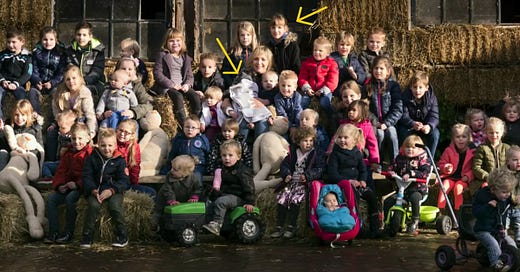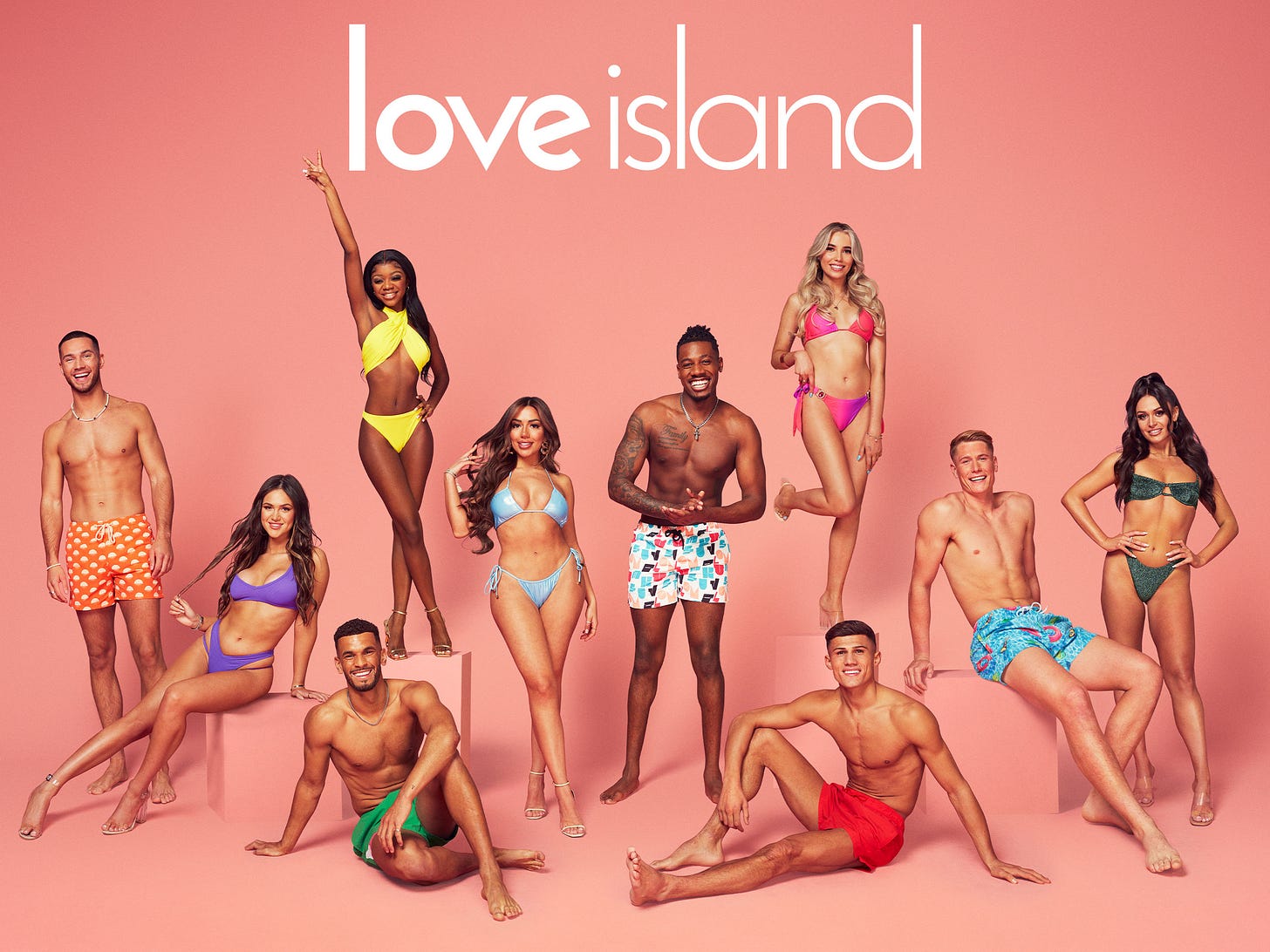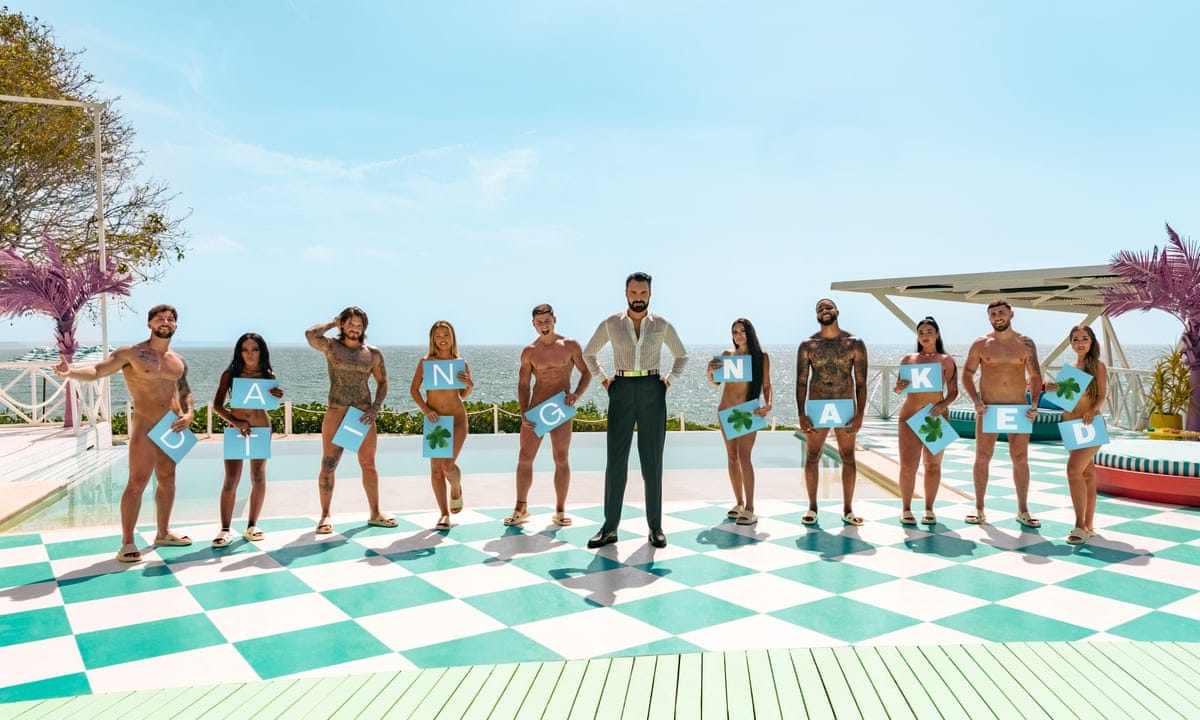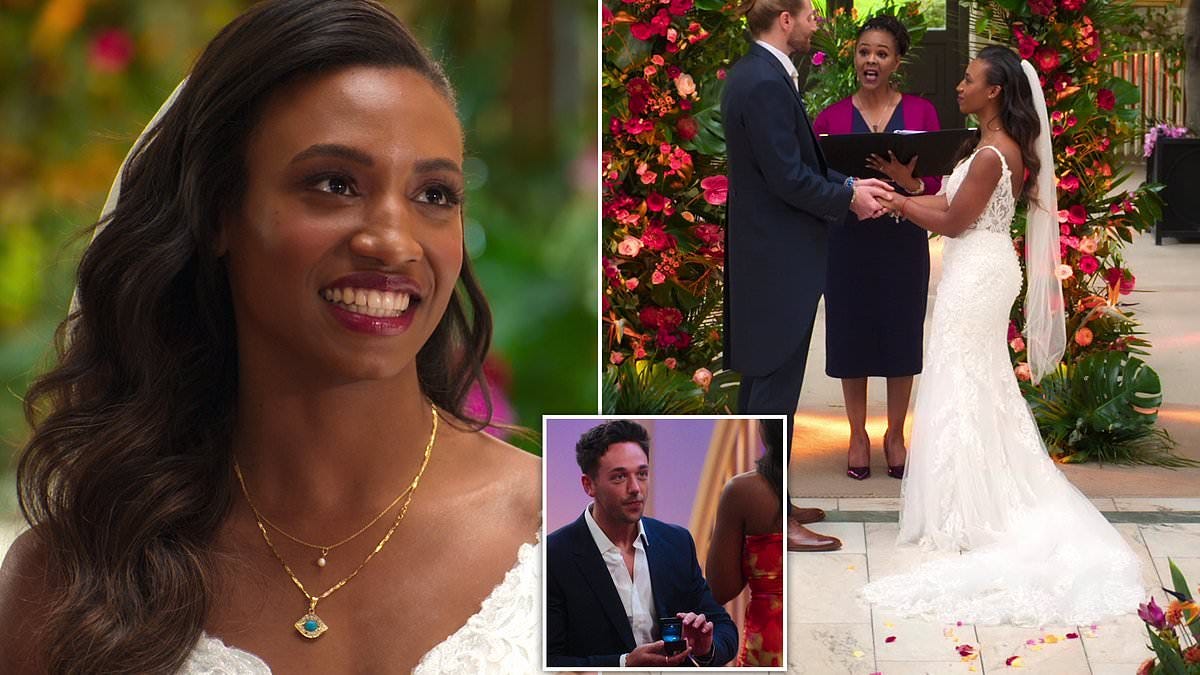For years I managed to keep dating shows at bay. No mean feat considering how inundated, and infatuated, we are with faux “real romance”. Seasons of “Farmer Seeks Wife (NL)” were carefully ignored, even though over three million viewers tuned in for the second season finale. It still on average pulls in at least half that. Even when we made the presenter’s wedding cake at the cake shop I worked at, I still refused to watch the show. I did not care how many marriages, and babies, the show had generated. I found the entire concept absurd, emotionally unhealthy and highly cringeworthy. Who watches this? Well, pretty much everyone, and now also me…
Two decades of “Boer Zoekt Vrouw” has been a fruitful dating experiment…
When binge watching pretty much anything on Netflix, from food porn, to home reno to my annual rewatching of all the seasons of Gilmore Girls, I deliberately avoided watching any dating shows for many years. Maybe it is because I am very guarded when it comes to my love life. It is personal and private. I am somewhat extreme in this. None of my romantic partners have ever met my parents. Maybe when a relationship makes it past the first three years I will consider that. As I said, extreme. I don’t want anyone involved in my love life, except the person I am making love with. I don’t want to be involved in anyone else’s either, let alone a bunch of strangers.
The first reality tv dating show I briefly succumbed to, was “Married At First Sight” Australia. I was house and dog sitting in Sydney. My brother was working for Nine at the time, the company that broadcasted it. Curiosity got the better of me. I managed two and half episodes before giving up. I had better things to do (like rewrite famous musical songs starring Boris and Igor, the two tiny terriers I was taking care of). I continued to live in my bubble, blissfully unaware of the horror that is reality TV dating shows.
Plummeting down the rabbit hole was, ironically, fuelled by one of my Tinder dates. All apps have been ditched since, but by then the damage was done. The first date had been spent fixing my garden fence, so my dogs wouldn’t escape while we walked over to the local fish restaurant. The second date he cooked me dinner and we went out on a bike ride. The third date we got take away. And watched TV together.
(Which I have since learned is “the lowest form of intimacy” according to one of the leading modern relationship guru’s. Forgot his name. He is like the male Esther Perel but then incredibly obnoxious…)
Love Island is where it all went wrong.
THE DATING SHOW TRAP
There are three things I love to watch: anything involving homes, food and travel. Now I have added “love”. In recent years, dating shows have emerged as a dominant force in television, captivating audiences around the world. When I finally owned up to watching these I was shocked to find out how many of my friends and family members were already hooked. Including my parents (maybe to compensate for the lack of involvement in my love life).
Programs such as The Bachelor, Love Island, and Too Hot to Handle are immensely popular, drawing millions of viewers per season. From bikini clad hot bodies on a deserted island to eccentrically dressed socially awkward lovebirds on the spectrum, everyone is deserving of love. TV seems to be the place to go find it. Many contestants have built a career out of it. Production companies simply keep the most popular and provocative ones on rotation. Seeing the same faces pop up fuels engagement even across shows, facilitated by the social media content monster that fills the void in between broadcasting seasons.
Dutch TV channels are spitting out format after format, from farmers to Bed and Breakfast owners to family run business owners. It makes contending for someone’s love interest look like a very elaborate and painful job interview process. It is not bordering on the ridiculous. It has already wandered far into a no man’s land completely void of any common sense. Or a sense of reality. As one Dutch TV critic said:
Maybe it is time the public TV companies handed back the tax payers’ money and started a dating agency instead.
What happened? Are we so love starved in our real lives that we have to live vicariously through the most absurd mating rituals performed on TV?
Reality TV dating shows have been here longer than I have been willing to acknowledge. And they are here to stay. They are highly addictive, like sugary fizzy pop and salty kettle crisps. But they are not necessarily good for us. The appeal is clear: voyeuristic interest, escapism, social connection, and emotional engagement.
They all tap into fundamental human desires for love and belonging. Yes, but. Yes, they are highly engaging and entertaining, a blissful escape from your own barren love life. But they may leave you with some unrealistic, and unhealthy, expectations and habits.
How they shape our understanding of love, relationships, and personal values is not something we can gloss over anymore. It is not just the ratings of the dating shows themselves that tell us we are heavily invested. It is also reflected in the vast ecosystem of media and social media content that is created around it. Their popularity, their distortion of romantic ideals, and the potential dangers they pose, indicate that dating shows are a complex cultural phenomenon with deep societal implications. Not just an innocent distraction.
Willing to bare all for love….on Naked Dating UK
Watching the unwatchable: Why do this to myself?
I wouldn’t want to tag along on my best friends’ dates, so why do I want to be a fly on the wall watching strangers flirt and frolic? Dating shows appeal to our innate curiosity and desire to observe social dynamics. They are also often structured as competitions, with participants vying for the affections of a central figure or for the "perfect match." This competitive element keeps audiences engaged, creating drama, tension, and cliffhangers that ensure loyal viewership.
I don’t have a competitive bone in my body. I don’t need men to head butt each other with their antlers on my behalf, nor do I have any desire to compete with women for a man’s attention. I have a (very unsuccessful) “take it or leave it” attitude. I literally can’t be asked. Winning a man’s heart doesn’t make me a better woman.
I do however love how dating shows take my mind of my own shit. And make me feel slightly more sane and stable than at least the average contestant. The element of escapism works for me, and for many. Watching cute and charismatic individuals, or eccentrics, in exotic locations can be a welcome, albeit slightly mind numbing experience. But despite the “reality tv” label it is not real. Remember that.
Even when “Love Is Blind” contestants have to introduce each other to their “real lives” there is nothing even remotely real about it. It is like watching two grown ups “play house” together, reducing their family and friends to extras on a sitcom. Their only role is to fuel the “will they won’t they” dynamic, with drama, doubts and discouragement.
Netflix & Co excel not just at the “faux” romance, they also add a layer of faux glamour. Dating shows are located on tropical islands, in expensive villa’s or luxury apartments. This is not real life, but we lap it up as if it is. The same way a supermodel is meant to sell you a lipgloss you don’t need, and that won’t turn you into a Bella Hadid look-alike, dating shows sell you a version of love you will never achieve. And very likely shouldn’t aspire to in the first place.
Colleen and Matt on Love Is Blind US (2022)
One of the most cited examples of this would be the match of Matt and Colleen on Love is Blind US. Emotionally abusive are the words used to describe their altercation in an article in Psychology Today, questioning the ethical responsibility. Not of the contestants personally, but of the production company. As if…
I won’t choose sides here, but the way this duo communicates should definitely not serve as a relationship template out here in the real world. Yet, it remained completely unaddressed on the show itself. “We” were too happy celebrating the success of them ending up as a happy couple, to even question their relationship dynamics (and the real life impact of those once the show is over).
Distorting Romantic Ideals: The New Lance A Lots
Despite their entertainment value, dating shows sell us a distorted view of romance. At their core, these programs prioritise spectacle and drama over authenticity. Is our suspension of disbelief (just as necessary to buy into the false narratives of reality TV as it is a prerequisite to get emotionally invested in a fictional scenario) strong enough to be genuinely invested and moved? Does it matter what happens? I think so.
We have to remain critical. The more often we see certain behavioural patterns repeated, especially when presented as real, the more of this seeps in. We internalise this shit. We normalise harmful behaviour. We start to have unrealistic expectations. Even if some of the contestants may genuinely be looking for love, we have to remember that their best interests are subservient to the production company's objectives. Keep us glued to the screen.
Relationships are typically portrayed as conflicted, intense, high-stakes experiences, with rapid emotional escalations and grand gestures. This contrasts sharply with how building trust and intimacy in real life should work. Participants are encouraged to "win" someone's affection, often at the expense of others. This framing reduces relationships to transactional exchanges, where the goal is to outperform rivals rather than connect meaningfully with a partner. May the best man win: Love is depicted as a prize to be won, rather than a mutual bond rooted in respect and understanding.
Nicole, Sam and Benaia on Love is Blind UK (2024)
Who watched Love Is Blind UK (2024) may have had some strong feelings watching the love triangle of Sam-Nicole-Benaia evolve. I know I did. Following the binary pattern of good versus evil made slick and self-centred Sam the bad guy and saw Benaia displaying an almost angelic virtue as Nicole’s selfless protector. Sam’s role was a dual one: he was not just Benaia’s competitor fighting for Nicole’s affections, creating the desired tension. He was also questioned on his motives to be on the show. Planting him as a possible fake is a perfect strategy to make the other contestants appear more sincere, and more “real” in their pursuit of love.
The artificial environment of dating shows completely skews our perception of romance. Controlled settings with limited distractions create a bubble. It is an unnatural environment that acts like a pressure cooker for emotions. Producers manipulate situations to maximise drama, by engineering conflicts or fostering jealousy. The adagio of “do not reward bad behaviour” does not apply to dating shows. I hate using the word “toxic”, but boy is this an emotionally charged and unhealthy approach to building any connection.
Participants of Onderweg naar liefde 2024 (Martijn second from the right)
The Dangers of Publicised Courtship
I would not like to step into the shoes of any dating show contestant. Not just because I have no desire to be on TV in general, and specifically do not believe that is where I will find love. It is the way contestants are treated. I have had some strong responses to certain shows and certain individuals myself. Taking three steps back I acknowledge how unfair I am being. Because the reality is: I have no idea who they are, or what actually happened. Whatever I am triggered by or responding to is a warped view of events, behaviour and people.
I would not write any of my harsher commentary online, I am not going to look someone up on Instagram and call them out, or call them names. But many viewers do. That can’t be a pleasant experience. And this backlash I think does catch them off guard. I think (almost) all contestants in “On the road to love” (NL) would benefit from therapy. Rarely have I seen such a bunch of awkward and unhinged individuals being lumped together on TV (not counting Everything is Love from sbs6 because that one I will always refuse to watch).
Where these tactics -of picking response provoking people intentionally and then placing them in triggering situations- used to be reserved for the commercial TV channels, known for their more callous approach, public TV has now joined them in the race to the highest ratings. It almost feels like a betrayal of my trust as a viewer.
I am responding to what is basically fiction as if it is real. I fall into the trap too. I believe SuperTyn is a creep. The man is a walking red flag. I observe a lot of relationship patterns on TV that align with, reward and perpetuate, what I see as troublesome in real life: men create issues and women take it upon themselves to fix those. Men abuse the woman’s longing for vulnerability and connection to have their needs met in the most narcissistic one way dynamics. Walk away. Walk away. I can’t count the number of times I have yelled this at a woman on my TV screen. WALK AWAY WOMAN THIS IS NOT WORTH YOUR TIME.
Denise was a walking target for abusive response on Winter Vol Liefde 2025
Women also get on my nerves. The “eccentric” Denise on Winter Vol Liefde (RTL4-NL) appears about as fake as they come. At least in her appearance and mannerisms.
After a few mouth dropping and excruciating scenes I dedicated another essay to what she brought out in me with “Bimbo versus Tradwife: Freud’s Madonna Whore Complex Revisited”.
Denise basically wants to eat Mike the ski instructor alive and seems to have his mother’s blessing to do so. Everything he does is magic, in Denise’s eyes. Denise, who seems to think that blond hair extensions, a lot of lip gloss, hip popping and hair flicking are enough to land her this hunk, is in for a disappointment. Being agreeable and admiring everything Mike does and is, has reduced her to “Cheerleader Barbie”, a one dimensional simplified image of what is a living and breathing human being as complex as all the rest of us. Yet, we don’t get to see her that way. Because that is not the role she was chosen to play. And which she maybe unwittingly and naively accepted (gossip is buzzing that she is a hired actress).
Dating shows pose risks to the participants and the audience. For contestants, the experience of dating multiple people in a public, competitive environment can be emotionally taxing. Public rejection, scrutiny, and the pressure to maintain a certain persona can lead to stress, anxiety, and even long-term psychological harm. In extreme cases, former contestants have reported struggles with mental health after being thrust into the spotlight. There have even been court cases accusing production companies of allowing sexual assault.
For audiences, these shows can reinforce unhealthy behaviours and expectations. The normalisation of jealousy, possessiveness, and manipulative tactics can shape viewers' attitudes toward relationships in detrimental ways. Hyper focus on physical attractiveness and surface-level compatibility perpetuates unrealistic beauty standards and shallow ideals of love. It is not a coincidence that most of the female contestants on Netflix dating shows look a certain way. The love may be blind for a minute, the audience isn’t.
There is also the question of motives. Many participants join dating shows not for love but for fame, social media followings, or career opportunities. This undermines the premise of genuine connection and exposes the performative nature of these programs. As the Dutch critic aptly pointed out, dating shows often function more like entertainment-driven matchmaking agencies than genuine explorations of romance. In this light, their role becomes less about fostering connections and more about exploiting human emotions for profit.
An Ethical Responsibility: Who Cares?
The criticism that TV companies should "give back their tax money and set up a dating agency" underscores a broader ethical dilemma. While dating shows may generate revenue and entertainment, they often fail to contribute meaningfully to society. Something we don’t expect from commercial companies. But should we hold public TV to a higher standard? Instead of encouraging authentic connections, they all capitalise on sensationalism, fostering a culture of voyeurism and superficiality. The contestants may resemble regular people in the way they look, their interactions still don’t reflect “regular dating rituals”. There is a growing argument that media companies have a responsibility to promote healthier representations of relationships and prioritise participants' well-being over ratings. But do we even care?
ARE THEY STILL TOGETHER?
Apparently I care. I can never resist to Google former contestants that left reunion episodes all loved up. In a way we need them to succeed to keep buying into the format. To keep watching. I just want to know if they are ok. I am sad to report that Matt and Colleen still seem to be sticking it out together. Walk away, woman, walk away…
PS I have just thought of a new TV format: public therapy sessions for former reality tv dating show contestants (and possibly some relationship advice from Esther Perel).











